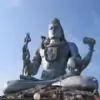Born on 1st of May 1919, Manna Dey was christened by his parents as Probodh Chandra Dey.
Manna Dey started his career in playback singing with the film Tamanna in 1943. The musical score was set by his uncle Krishna Chandra Dey and he had to sing a duet with Suraiya
It'll not be wrong to claim that it was he who pioneered a new genre in Indian music where he infused Indian classical music within a pop frame work. His experimentation with western music too produced many unforgettable melodies. Till date there is no Indian language which has not been blessed by the melody of this multitalented singer.
During the golden era of music, when a song required a high level of vocal flexibility and classical punch, the natural choice was Manna Dey.
The story behind his duet with Hindustani maestro Bhimsen Joshi is now part of film lore ('Ketaki Gulab' for the film Basant Bahar). In the film the hero (for whom Manna sang) defeats his rival (for whom Joshi sang).
For all his expertise, not too many awards came Manna's way. "When I sang 'Nirbal se ladaiee', V Shantaram wept. He said I should be given all the awards. I was never given any award for this" Manna Dey recollects.
Manna counts Mohammed Rafi among his good friends. "He was a very good, godfearing, simple person. He never smoked, never chewed paan, never drank. He used to go to work, come back and spend time with his family. I was also that kind of person, so we used to vibe very well with each other. I have been fortunate to have a friend like him."
Another common passion that the two great singers shared was kite-flying! "Rafi used to love to fly kites, and so did I. I used to be very good at it. And I used to cut all of Rafi's kites! He used to ask me, 'Dada, is there some magic in your kites?' And I used to say, 'Shall I tell you something? You don't know how to fly kites!"
























